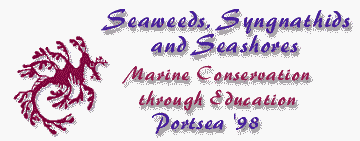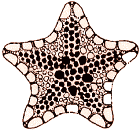 |
 |
Abstracts of Conference Papers
Writing Environmental Education Programs
June Loves
Gould League of Victoria
Genoa St.
Moorabbin, Vic 3189
|
Writing environmental education programs is tricky. Writing marine programs in which children and water are combined is even trickier! You need a recipe – a combination of ingredients and a method that will produce successful programs. The session includes a combination of ingredients and a method for developing and implementing a relevant and successful environmental education program. |
 |
During the session participants will be introduced to writing activities which can be used as starting points in producing their own environmental education programs.
June Loves is a former teacher, education consultant and is now author of over forty books .She is author of Beach Secrets the Gould League marine education program for lower primary schools. With co-author Judi Champion, teacher and consultant, she has written the Teachers' Package to support the Beach Secrets program
Recipe for Environmental Education Programs
Ingredients
- safety precautions
- attention-grabbing introduction
- a number of short action-packed activities
- learning outcome links with the national and/or state curricula
- add-on value pre and post teacher support activity packages
- passionate and enthusiastic presenter/s with a thorough knowledge of program
Method
- Plan program
- Pre-select
- an area or site
- an attention-grabbing, fun, interactive introduction (eg beach/sea theatre/puppets/inspiring wild life experience)
- a number of activities linked to relevant learning outcomes (for primary children plan for 10 to 15 minute activities)
- resources – equipment/kits in ample quantities
- write support take-away program for teachers
- Prepare
- visit and check out area
- build in safety factors
- resources – waterproof check-lists etc./label/storage
- 'Be kind equipment' for presenter's kit (eg cool drinks, flask of
coffee, food, shady hat, sun screen, spare change of clothes)
- Time
- program – do a run-through – work to exact time frame
- Practise! Practise!
- keep a check-list in waterproof for to kit on key ring
- tape to yourself
- Present
- with passion, enthusiasm
- set boundaries and responsibilities for students for their own safety and safety of the environment
- be flexible
- enjoy yourself
- Evaluation
- self
- elements of program
- feedback
- Make any changes necessary. Prepare for next session